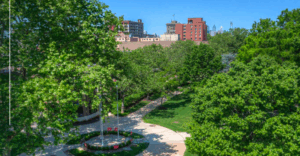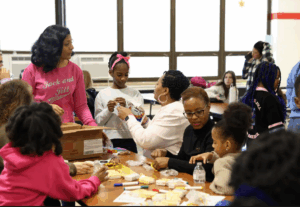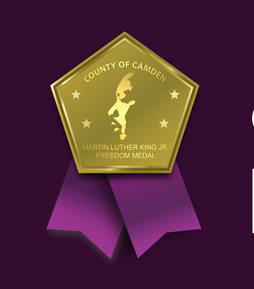Diverse Voices: Seabrook Invites Local Taiko Drumming Groups To Celebrate Obon Festival
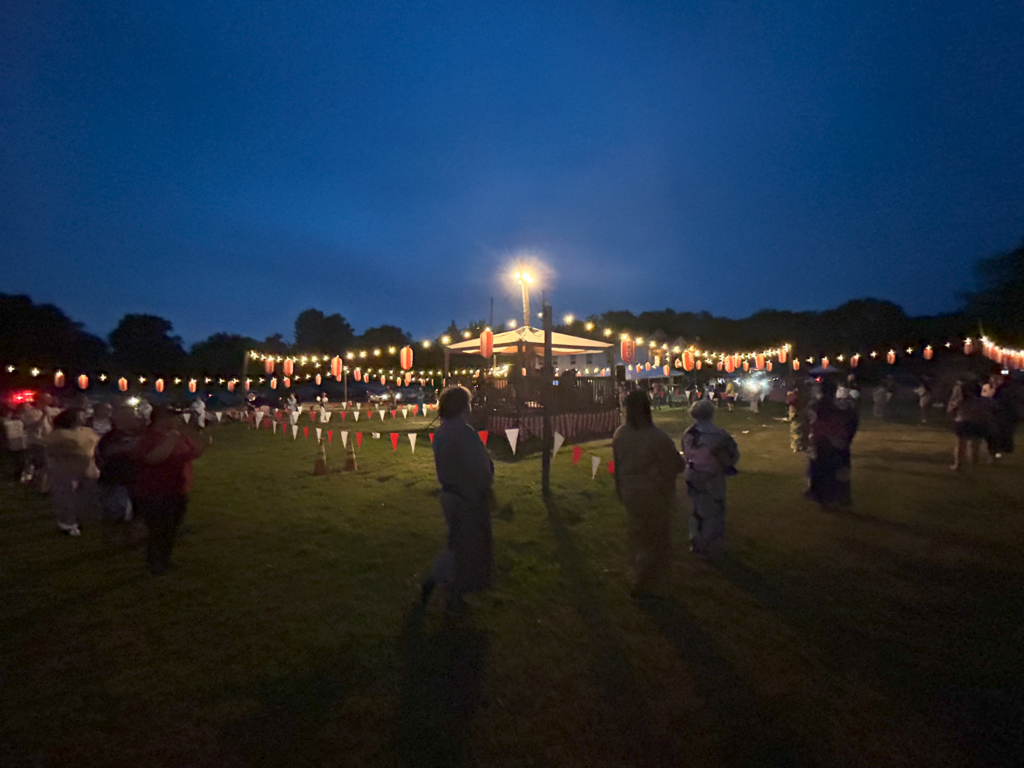
BY DANIEL WINNER | Front Runner New Jersey Correspondent
SEABROOK — On Saturday, July 20, the Japanese American community and many more came together at the Seabrook Buddhist Temple to celebrate its 79th Annual Obon Festival, an annual holiday with deeply significant religious and cultural roots. The grounds were imbued with music and dancing, as well as vendors selling both traditional Japanese snacks and fair favorites like hot dogs and snow cones. Performances were held by Taiko drumming troupes from the surrounding areas, including local Hoh Daiko, Nen Daiko, Soh Daiko, and a special guest performance by Takumi Kato.
Obon is the Japanese name for the Ullambana Festival, also known as the Ghost Festival. Similar to All Hallows’ Eve and Día de Muertos, Obon is a time set aside to remember the departed, especially one’s own ancestors. The Sanskrit word “Ullambana” has some mystery surrounding its actual meaning, but folk etymologies include “helping,” as in helping the dead, or “hanging down” which would refer to those departed spirits who find themselves in a purgatorial existence. Still others have proposed that the word is a mistranslation of “odana” which means “cooked rice” and is a favorite form of offering to the deceased.
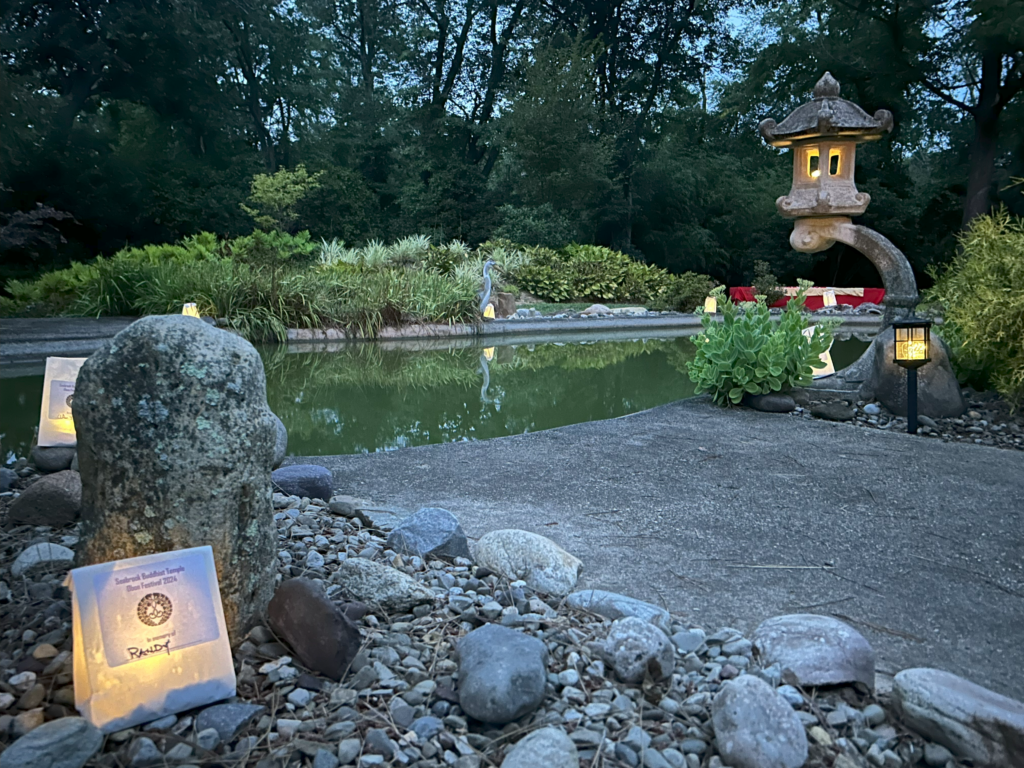
Whichever the case, the Ghost Festival is ubiquitous throughout the Asian world and its diasporic communities. Its origins lie in a Buddhist scripture commonly known as the Ullambana Sutra. In this short text, the Buddha’s disciple Maudgalyayana discovers that his deceased mother had been reborn as a ghost, suffering from extreme hunger and thirst. Despite his great prowess in meditative powers, his attempt to offer his mother food was in vain, as it quickly turned into burning coals in her hands.
Distraught from being unable to save his mother, Maudgalyayana went to the Buddha for advice. The Buddha taught the elder that the only means of helping those in the realm of hungry ghosts was by making offerings to the Sangha, the holy community, on the full moon day after the rains retreat. If one does as instructed in the sutra, one’s deceased family members as far back as seven generations will attain salvation from the three realms of suffering; hell, hungry ghosts, and animals; and be reborn in heaven.
The turnout at Seabrook this time around was similar to previous years, with the temple attracting celebrants from different ethnic backgrounds and religious affiliations, but all had a profound appreciation for Japanese culture, with many non-Japanese dressed in their finest summer yukata. Several attendees even joined in the traditional bon-odori, an Obon-specific folk dance with a history that goes back nearly 600 years that functions as an invitation for the spirits of the deceased.
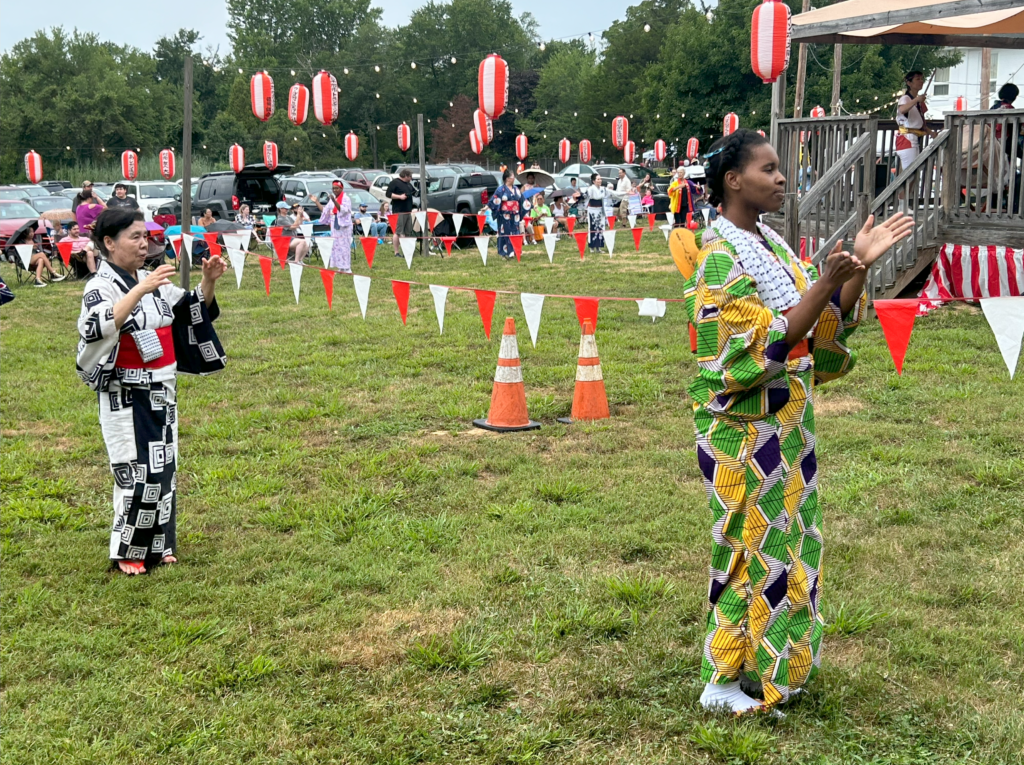
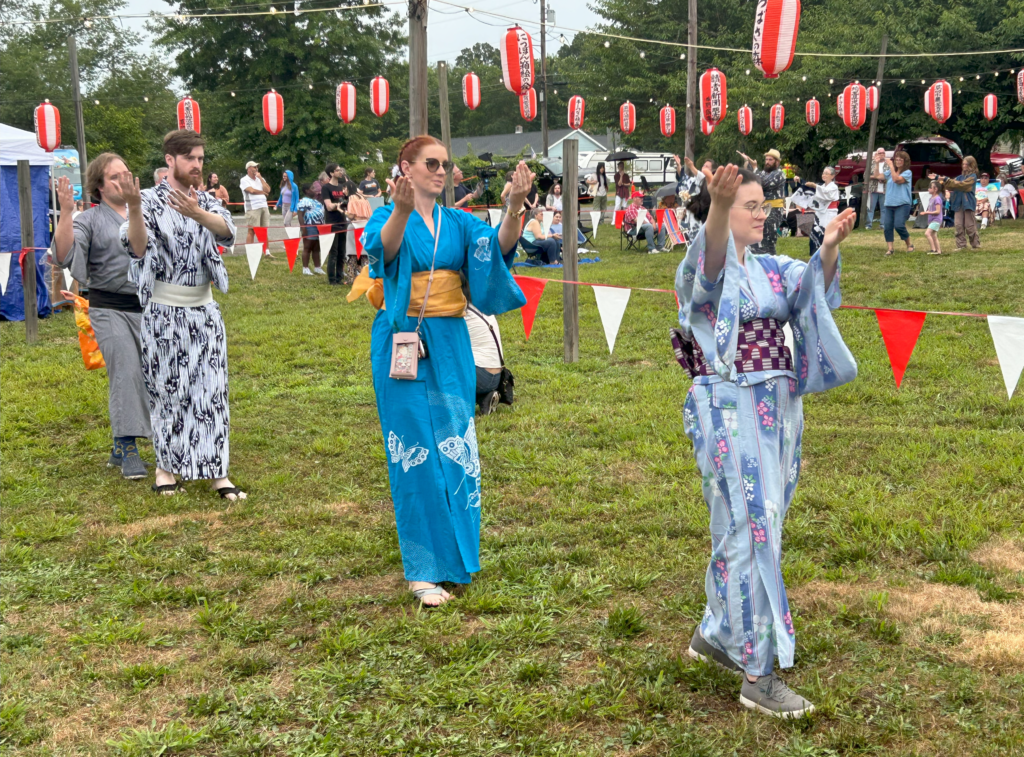
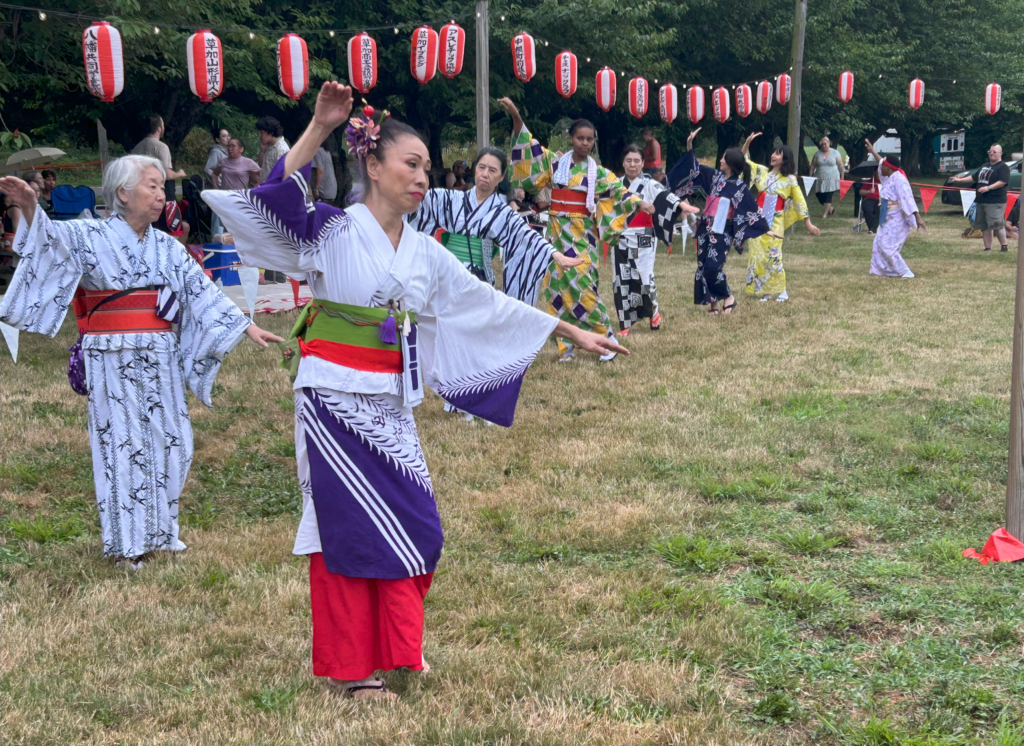
One of the main features of the festival was its inclusion of taiko drumming performances. Taiko generally refers to Japanese drums which have been used since the 6th century CE. Once used for warfare and traditional theater, taiko drums are now largely associated with performing ensembles called “kumi-daiko” or “group drumming.” Seabrook Buddhist Temple even has its own drumming group, Hoh Daiko, established on February 23, 1991. Soh Daiko from New York City and Nen Daiko of Ekoji Buddhist Temple in Fairfax Station, VA joined in the festivities, bringing even more energy and excitement to the crowd.
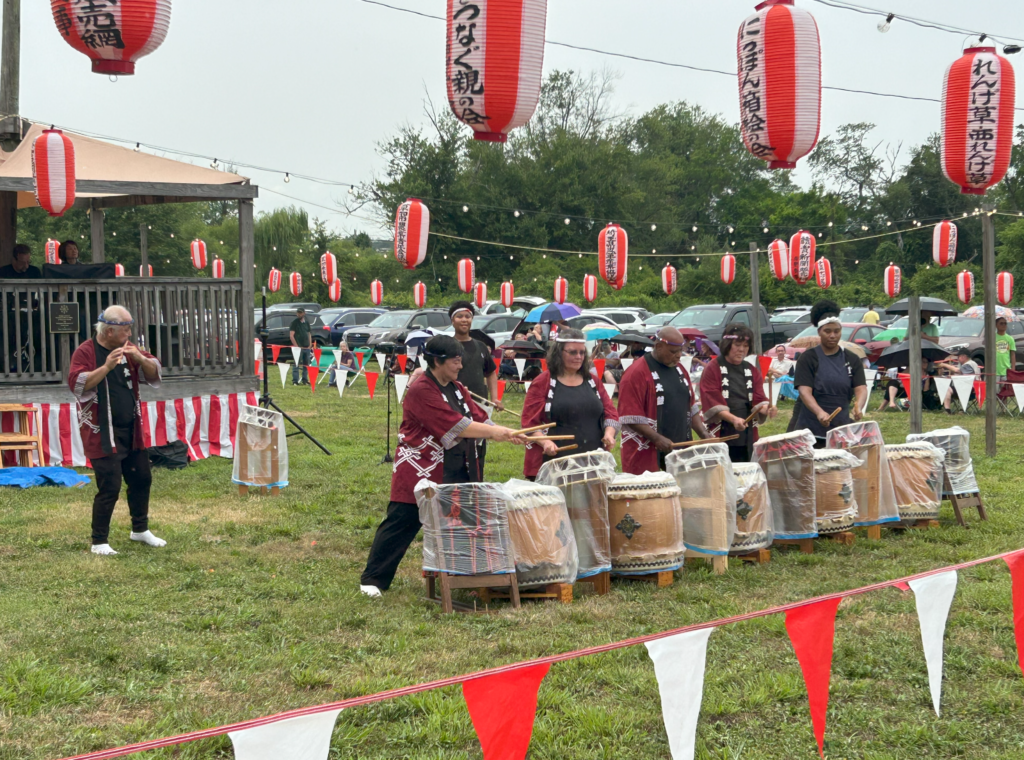
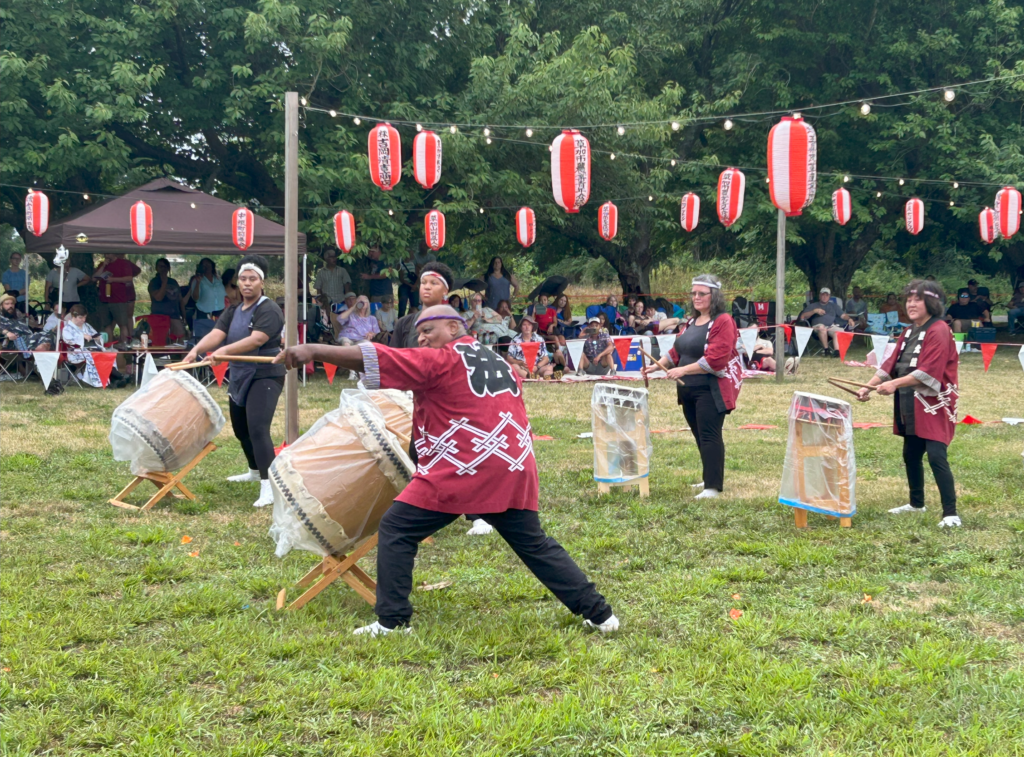
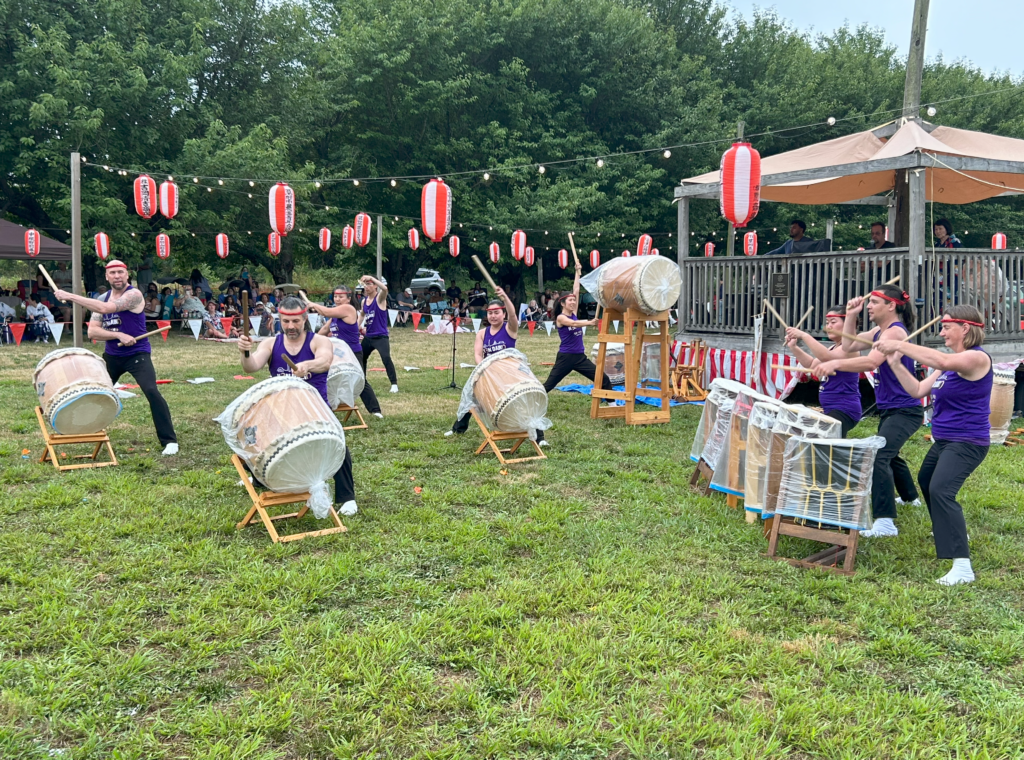
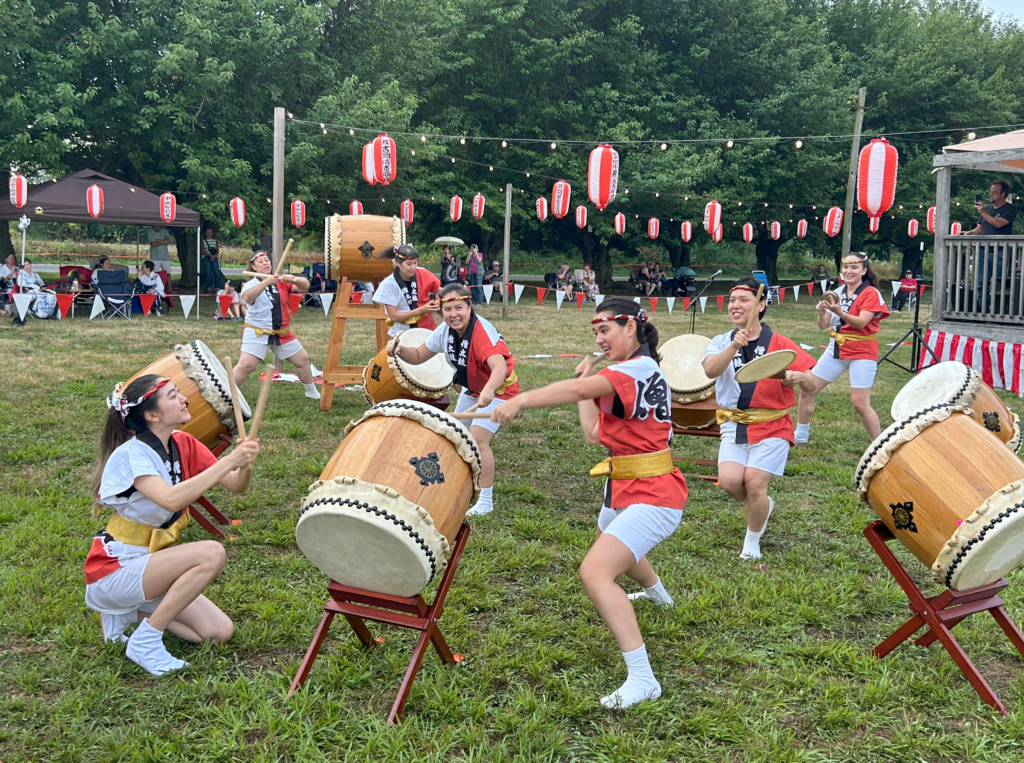
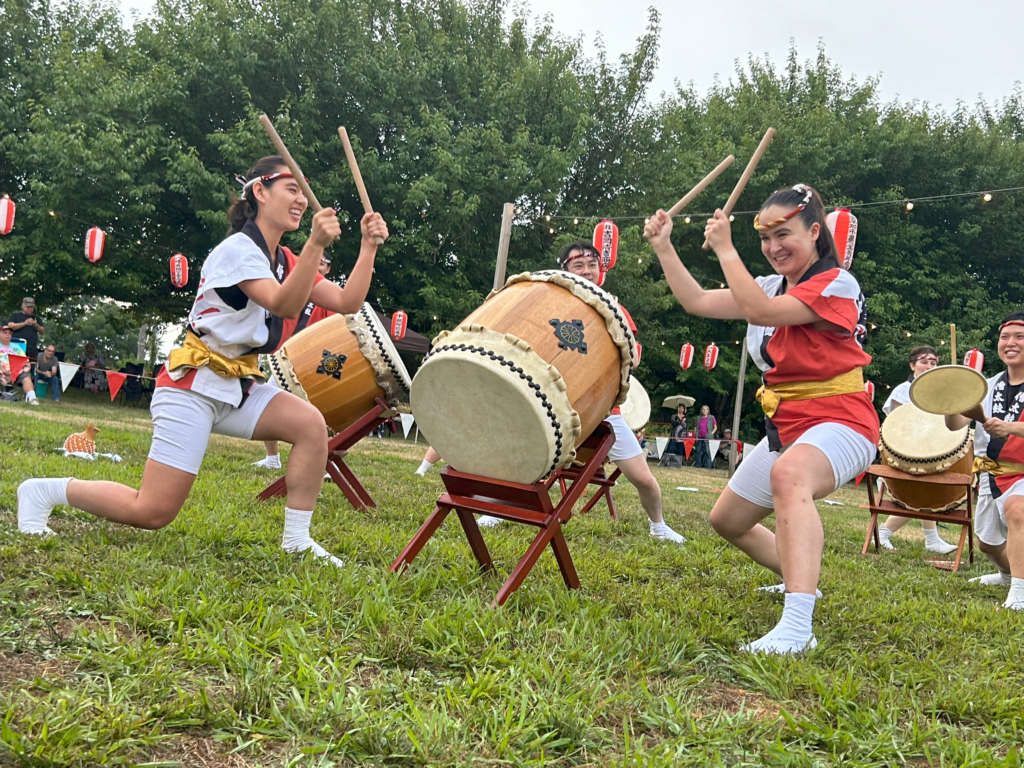
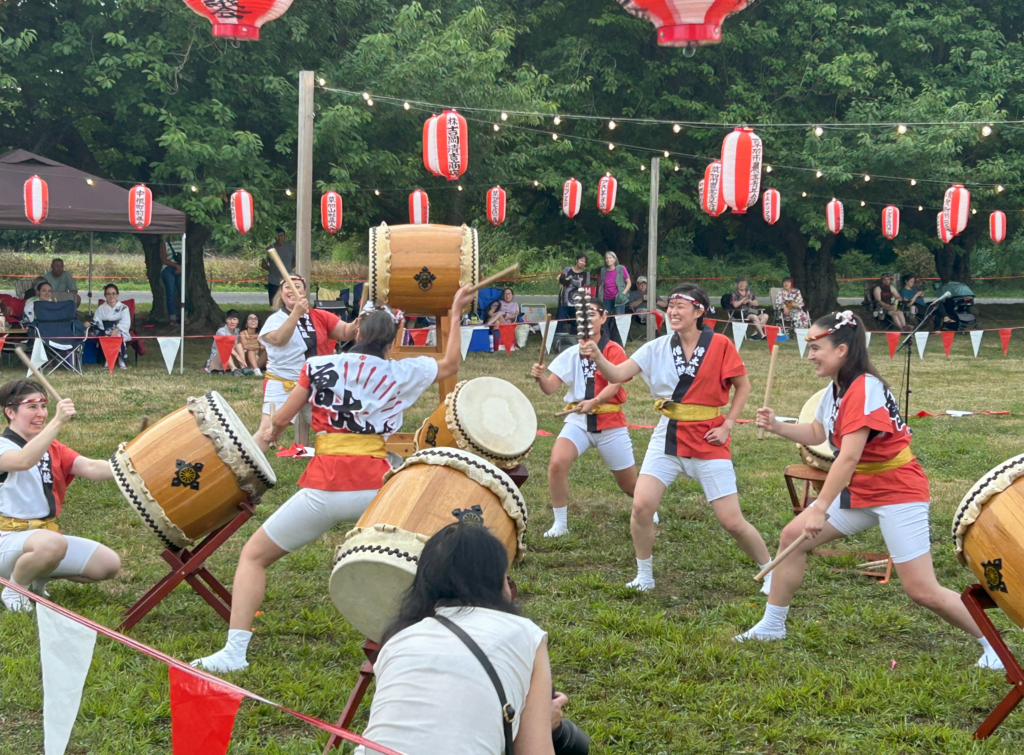
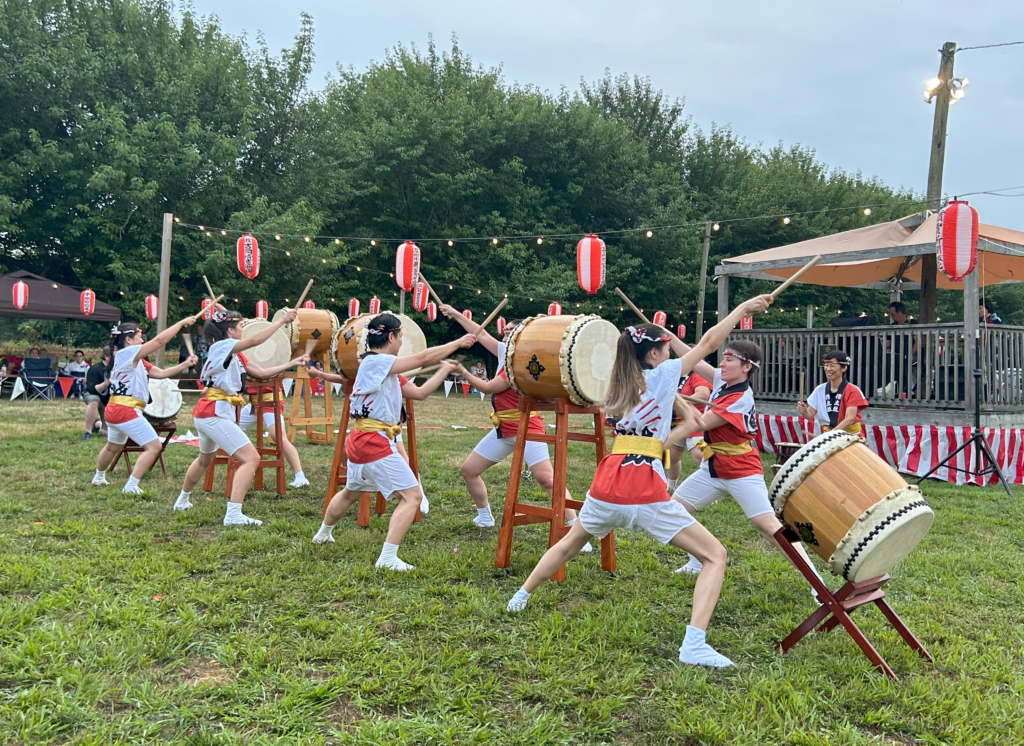
Takumi Kato, founder of the music studio Forest of NUKUMORI made a special appearance with his children, Sogen, 11, Ryoma, 9, and Yamato, 6, as well as his wife Izuna. Together, they have been performing as a “Peaceful Forest” ensemble on a “goodwill tour to spread a message of peace and hope through traditional performing arts.” Their goal is to provide 1000 free concerts across all 50 states within 5 years.
Anyone can support Peaceful Forest’s efforts by visiting their GoFundMe page HERE.
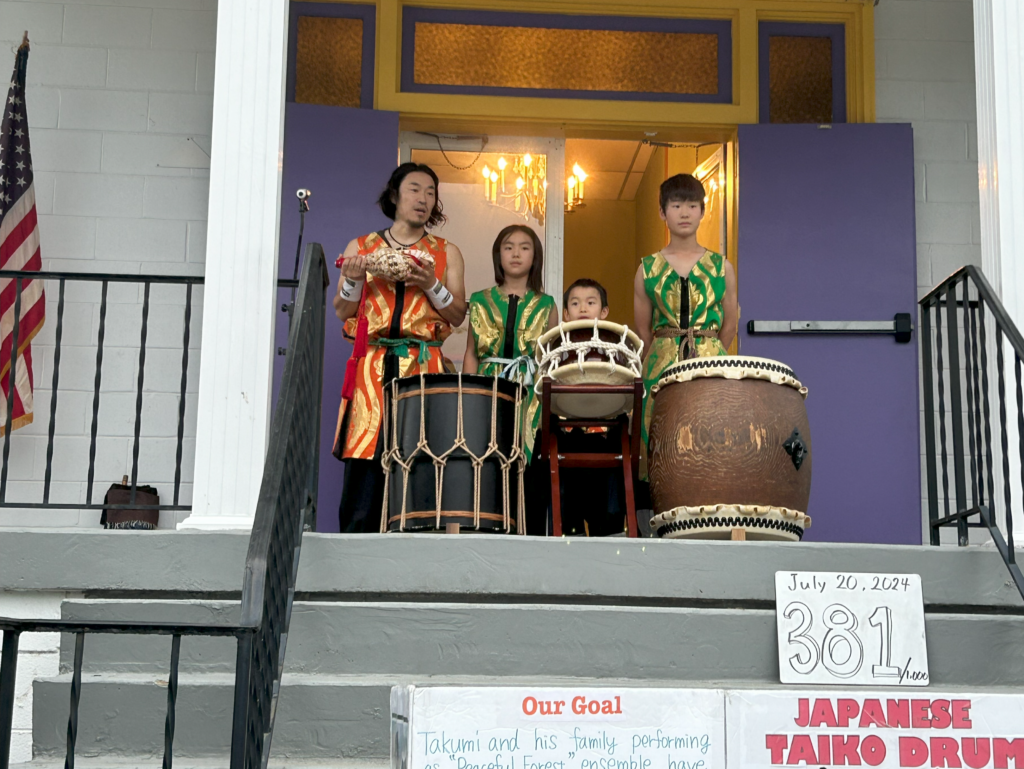
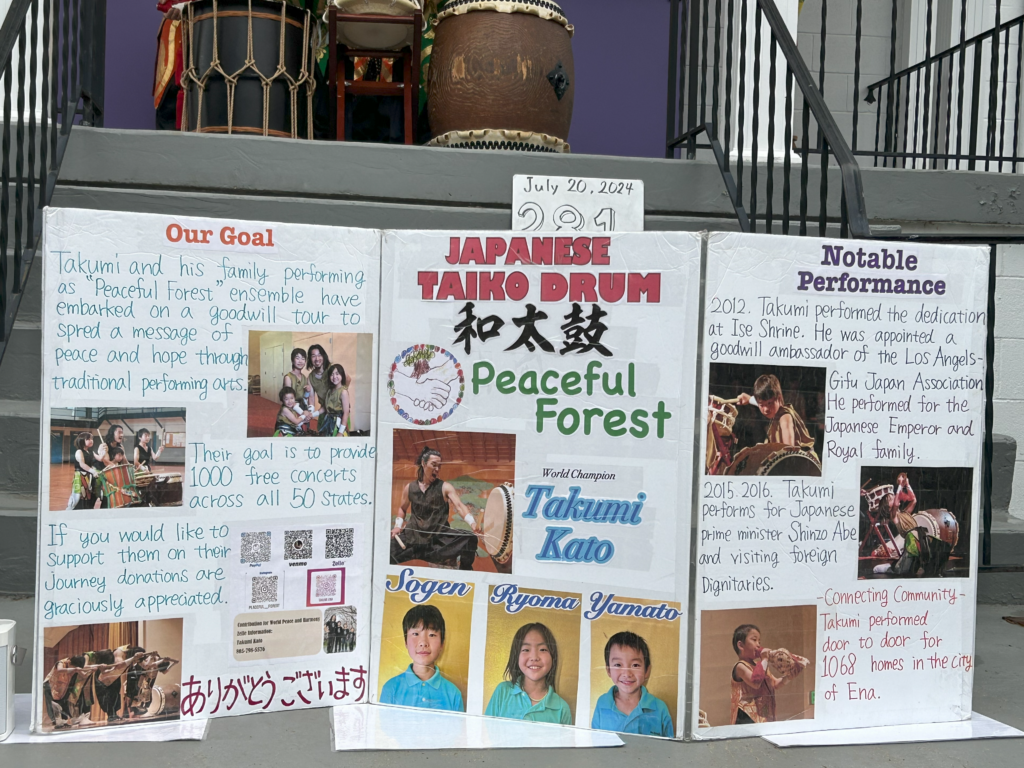
If you missed the celebration this year, there is no need to fret as there is surely more to come from other organizations. The Ghost Festival traditionally falls on the 15th night of the seventh lunar month – which is a full moon – and the Japanese variant actually takes place about one month before this time. This is because the Japanese government adopted the Gregorian calendar in 1873, assigning every popular holiday in the traditional calendar to an earlier date.
Other groups who contributed to the event included Shotokan Karate Academy, Cherry Hill Kenyu Kai Kendo, and Upper Deerfield Township Schools Summer Music Theater Camp. Funding for this year’s event was made possible by the New Jersey Council on the Arts/Department of State, the National Endowment for the Arts, the Cumberland County Board of County Commissioners, and the Cumberland County Cultural & Heritage Commission.
EDITOR’S NOTE: Daniel Winner has a double major in Religious Studies and Japanese from Penn State University and has traveled internationally to the Far East on several occasions. His insights on religious traditions and Asian culture give a unique view of historical and modern trends. He will be serving as a contributor for Front Runner New Jersey.
Follow Us Today On:
Note from AC JosepH Media: If you like this story and others posted on Front Runner New Jersey.com, lend us a hand so we can keep producing articles like these for New Jersey and the world to see. Click on SUPPORT FRNJ and make a contribution that will do directly in making more stories like this available. Thank you for reading!
